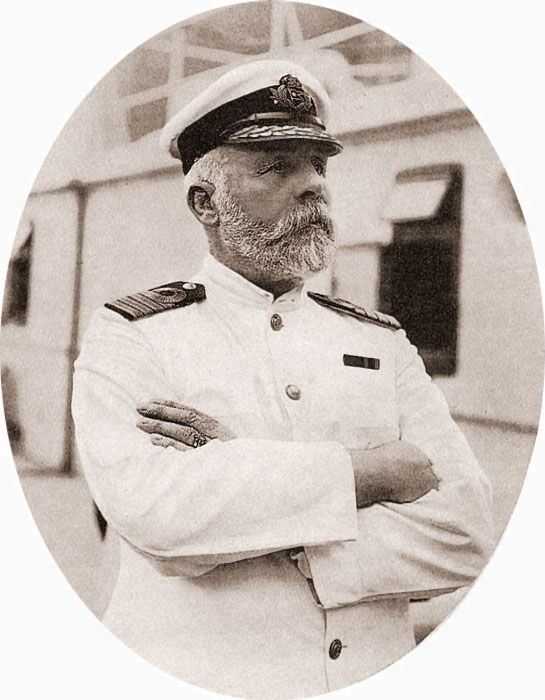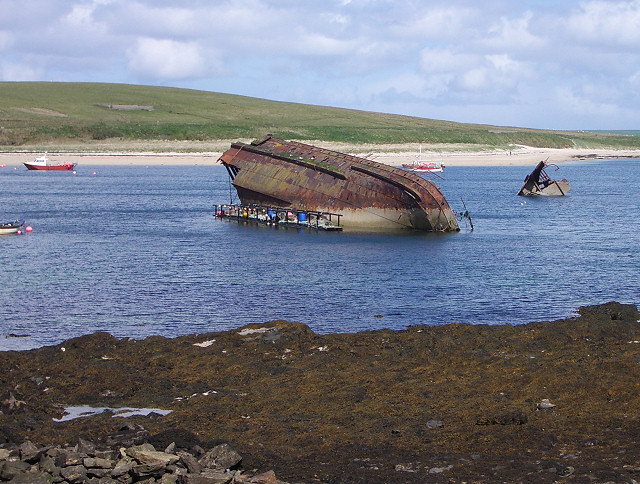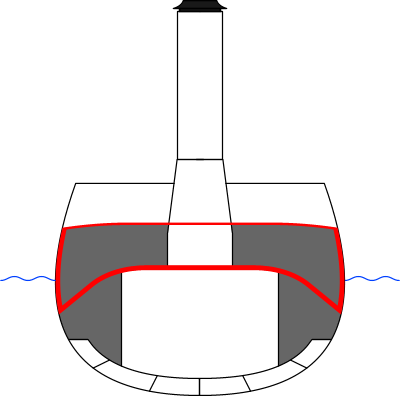|
French Gunboat Zélée
''Zélée'' was a ''Surprise''-class gunboat of the French Navy. Designed for use overseas, she was used largely in the French colonies in Indochina and the Pacific. Assigned to patrol the waters off Tahiti at the start of World War I, she was sunk before scuttling could be completed during the Bombardment of Papeete on 22 September 1914. Service Present at Papeete during a devastating hurricane in February 1906, ''Zélée''s commander was asked to assist with rescue efforts on the quarantine island of Motauta, but refused due to the high risk involved. Instead he lent the island's station master an open boat and left him with the task of finding men to man it. At the outbreak of World War I, ''Zélée'' was stationed at Papeete and took part in the first French naval action of the war. The German cargo ship ''Walkure'' had been loading a cargo of phosphates at Makatea, an island from Tahiti. ''Zélée'' approached her, raised the French flag, and demanded her surrender. The Ger ... [...More Info...] [...Related Items...] OR: [Wikipedia] [Google] [Baidu] |
Bombardment Of Papeete
The Bombardment of Papeete occurred in French Polynesia when German warships attacked on 22 September 1914, during World War I. The German armoured cruisers and entered the port of Papeete on the island of Tahiti and sank the French gunboat and freighter ''Walküre'' before bombarding the town's fortifications. French shore batteries and a gunboat resisted the German intrusion but were greatly outgunned. The main German objective was to seize the coal piles stored on the island, but these were destroyed by the French at the start of the action. The German vessels were largely undamaged but the French lost their gunboat. Several of Papeete's buildings were destroyed and the town's economy was severely disrupted. The main strategic consequence of the engagement was the disclosure of the cruisers' positions to the British Admiralty, which led to the Battle of Coronel where the entire German East Asia Squadron defeated a Royal Navy squadron. The depletion of ''Scharnhorst''s and ... [...More Info...] [...Related Items...] OR: [Wikipedia] [Google] [Baidu] |
Sea Captain
A sea captain, ship's captain, captain, master, or shipmaster, is a high-grade licensed mariner who holds ultimate command and responsibility of a merchant vessel.Aragon and Messner, 2001, p.3. The captain is responsible for the safe and efficient operation of the ship, including its seaworthiness, safety and security, cargo operations, navigation, crew management, and legal compliance, and for the persons and cargo on board. Duties and functions The captain ensures that the ship complies with local and international laws and complies also with company and flag state policies. The captain is ultimately responsible, under the law, for aspects of operation such as the safe navigation of the ship,Aragon and Messner, 2001, p.4. its cleanliness and seaworthiness,Aragon and Messner, 2001, p.5. safe handling of all cargo,Aragon and Messner, 2001, p.7. management of all personnel,Aragon and Messner, 2001, p.7-11. inventory of ship's cash and stores,Aragon and Messner, 2001, p.11-12. an ... [...More Info...] [...Related Items...] OR: [Wikipedia] [Google] [Baidu] |
Ships Built In France
A ship is a large watercraft that travels the world's oceans and other sufficiently deep waterways, carrying cargo or passengers, or in support of specialized missions, such as defense, research, and fishing. Ships are generally distinguished from boats, based on size, shape, load capacity, and purpose. Ships have supported exploration, trade, warfare, migration, colonization, and science. After the 15th century, new crops that had come from and to the Americas via the European seafarers significantly contributed to world population growth. Ship transport is responsible for the largest portion of world commerce. The word ''ship'' has meant, depending on the era and the context, either just a large vessel or specifically a ship-rigged sailing ship with three or more masts, each of which is square-rigged. As of 2016, there were more than 49,000 merchant ships, totaling almost 1.8 billion dead weight tons. Of these 28% were oil tankers, 43% were bulk carriers, and 13% were co ... [...More Info...] [...Related Items...] OR: [Wikipedia] [Google] [Baidu] |
World War I Naval Ships Of France
In its most general sense, the term "world" refers to the totality of entities, to the whole of reality or to everything that is. The nature of the world has been conceptualized differently in different fields. Some conceptions see the world as unique while others talk of a "plurality of worlds". Some treat the world as one simple object while others analyze the world as a complex made up of many parts. In ''scientific cosmology'' the world or universe is commonly defined as " e totality of all space and time; all that is, has been, and will be". '' Theories of modality'', on the other hand, talk of possible worlds as complete and consistent ways how things could have been. ''Phenomenology'', starting from the horizon of co-given objects present in the periphery of every experience, defines the world as the biggest horizon or the "horizon of all horizons". In ''philosophy of mind'', the world is commonly contrasted with the mind as that which is represented by the mind. ''Th ... [...More Info...] [...Related Items...] OR: [Wikipedia] [Google] [Baidu] |
Blockship
A blockship is a ship deliberately sunk to prevent a river, channel, or canal from being used. It may either be sunk by a navy defending the waterway to prevent the ingress of attacking enemy forces, as in the case of at Portland Harbour in 1914; or it may be brought by enemy raiders and used to prevent the waterway from being used by the defending forces, as in the case of the three old cruisers , and scuttled during the Zeebrugge raid in 1918 to prevent the port from being used by the German navy. An early use was in 1667, during the Dutch Raid on the Medway and their attempts to do likewise in the Thames during the Second Anglo-Dutch War, when a number of warships and merchant ships commandeered by the Royal Navy were sunk in those rivers to attempt to stop the attacking forces. An even earlier use are the six 11th century Skuldelev ships in Roskilde Fjord, sunk to protect Roskilde from northern Vikings. They are now on display in the Viking Ship Museum. The above is the p ... [...More Info...] [...Related Items...] OR: [Wikipedia] [Google] [Baidu] |
Scuttling
Scuttling is the deliberate sinking of a ship. Scuttling may be performed to dispose of an abandoned, old, or captured vessel; to prevent the vessel from becoming a navigation hazard; as an act of self destruct, self-destruction to prevent the ship from being captured by an enemy force (or, in the case of a vessel engaged in illegal activities, by the authorities); as a blockship to restrict navigation through a Channel (geography), channel or within a harbor; to provide an artificial reef for divers and marine life; or to alter the flow of rivers. Notable historical examples Skuldelev ships (around 1070) The Skuldelev ships, five Viking ships, were sunk to prevent attacks from the sea on the Danish city of Roskilde. The scuttling blocked a major waterway, redirecting ships to a smaller one that required considerable local knowledge. Cog near Kampen (early 15th century) In 2012, a Cog (ship), cog preserved from the keel up to the decks in the silt was discovered alongside ... [...More Info...] [...Related Items...] OR: [Wikipedia] [Google] [Baidu] |
Armoured Cruiser
The armored cruiser was a type of warship of the late 19th and early 20th centuries. It was designed like other types of cruisers to operate as a long-range, independent warship, capable of defeating any ship apart from a battleship and fast enough to outrun any battleship it encountered. For many decades, naval technology had not advanced far enough for designers to produce a cruiser which combined an armored belt with the long range and high speed required to fulfill its mission. For this reason, beginning in the 1880s and 1890s, many navies preferred to build protected cruisers, which only relied on a light armored deck to protect the vital parts of the ship. However, by the late 1880s, the development of modern rapid-fire breech-loading cannon and high-explosive shells made the reintroduction of side armor a necessity. The invention of face-hardened armor in the mid-1890s offered effective protection with less weight than previously. Varying in size, the armored cruiser was ... [...More Info...] [...Related Items...] OR: [Wikipedia] [Google] [Baidu] |
Imperial German Navy
The Imperial German Navy or the Imperial Navy () was the navy of the German Empire, which existed between 1871 and 1919. It grew out of the small Prussian Navy (from 1867 the North German Federal Navy), which was mainly for coast defence. Wilhelm II, German Emperor, Kaiser Wilhelm II greatly expanded the navy. The key leader was Admiral Alfred von Tirpitz, who greatly expanded the size and quality of the navy, while adopting the sea power theories of American strategist Alfred Thayer Mahan. The result was a Anglo-German naval arms race, naval arms race with Britain, as the German navy grew to become one of the greatest maritime forces in the world, second only to the Royal Navy. The German surface navy proved ineffective during the First World War; its only major engagement, the Battle of Jutland, was a draw, but it kept the surface fleet largely in port for the rest of the war. The submarine fleet was greatly expanded and threatened the British supply system during the Atlantic ... [...More Info...] [...Related Items...] OR: [Wikipedia] [Google] [Baidu] |
Prize (law)
In admiralty law prizes are equipment, vehicles, vessels, and cargo captured during armed conflict. The most common use of ''prize'' in this sense is the capture of an enemy ship and her cargo as a prize of war. In the past, the capturing force would commonly be allotted a share of the worth of the captured prize. Nations often granted letters of marque that would entitle private parties to capture enemy property, usually ships. Once the ship was secured on friendly territory, she would be made the subject of a prize case: an ''in rem'' proceeding in which the court determined the status of the condemned property and the manner in which the property was to be disposed of. History and sources of prize law In his book ''The Prize Game'', Donald Petrie writes, "at the outset, prize taking was all smash and grab, like breaking a jeweler's window, but by the fifteenth century a body of guiding rules, the maritime law of nations, had begun to evolve and achieve international recogn ... [...More Info...] [...Related Items...] OR: [Wikipedia] [Google] [Baidu] |
Commanding Officer
The commanding officer (CO) or sometimes, if the incumbent is a general officer, commanding general (CG), is the officer in command of a military unit. The commanding officer has ultimate authority over the unit, and is usually given wide latitude to run the unit as they see fit, within the bounds of military law. In this respect, commanding officers have significant responsibilities (for example, the use of force, finances, equipment, the Geneva Conventions), duties (to higher authority, mission effectiveness, duty of care to personnel), and powers (for example, discipline and punishment of personnel within certain limits of military law). In some countries, commanding officers may be of any commissioned rank. Usually, there are more officers than command positions available, and time spent in command is generally a key aspect of promotion, so the role of commanding officer is highly valued. The commanding officer is often assisted by an executive officer (XO) or second-in-com ... [...More Info...] [...Related Items...] OR: [Wikipedia] [Google] [Baidu] |
France
France (), officially the French Republic ( ), is a country primarily located in Western Europe. It also comprises of Overseas France, overseas regions and territories in the Americas and the Atlantic Ocean, Atlantic, Pacific Ocean, Pacific and Indian Oceans. Its Metropolitan France, metropolitan area extends from the Rhine to the Atlantic Ocean and from the Mediterranean Sea to the English Channel and the North Sea; overseas territories include French Guiana in South America, Saint Pierre and Miquelon in the North Atlantic, the French West Indies, and many islands in Oceania and the Indian Ocean. Due to its several coastal territories, France has the largest exclusive economic zone in the world. France borders Belgium, Luxembourg, Germany, Switzerland, Monaco, Italy, Andorra, and Spain in continental Europe, as well as the Kingdom of the Netherlands, Netherlands, Suriname, and Brazil in the Americas via its overseas territories in French Guiana and Saint Martin (island), ... [...More Info...] [...Related Items...] OR: [Wikipedia] [Google] [Baidu] |
German Empire
The German Empire (),Herbert Tuttle wrote in September 1881 that the term "Reich" does not literally connote an empire as has been commonly assumed by English-speaking people. The term literally denotes an empire – particularly a hereditary empire led by an emperor, although has been used in German to denote the Roman Empire because it had a weak hereditary tradition. In the case of the German Empire, the official name was , which is properly translated as "German Empire" because the official position of head of state in the constitution of the German Empire was officially a "presidency" of a confederation of German states led by the King of Prussia who would assume "the title of German Emperor" as referring to the German people, but was not emperor of Germany as in an emperor of a state. –The German Empire" ''Harper's New Monthly Magazine''. vol. 63, issue 376, pp. 591–603; here p. 593. also referred to as Imperial Germany, the Second Reich, as well as simply Germany, ... [...More Info...] [...Related Items...] OR: [Wikipedia] [Google] [Baidu] |







